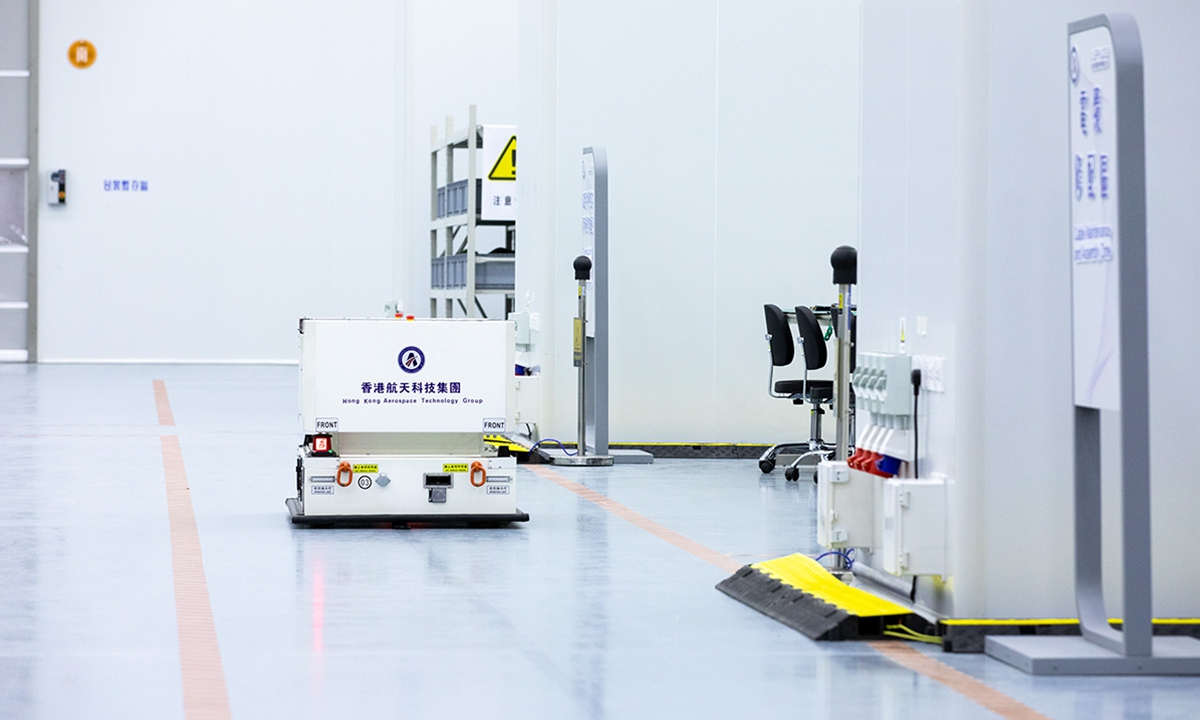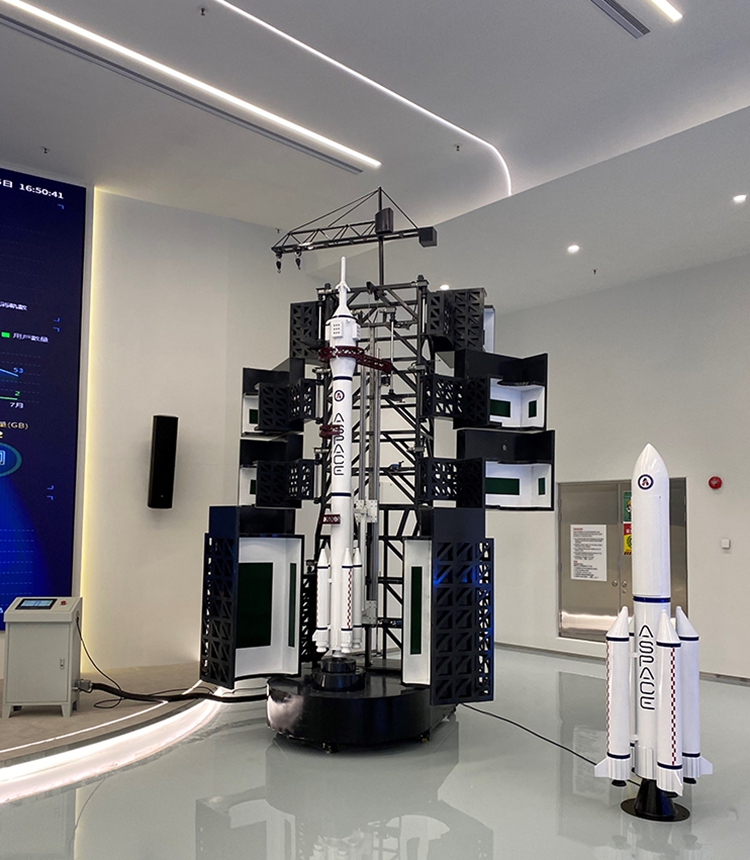SCI-TECH / AIR & SPACE
Exclusive: Hong Kong's first-ever and one of the world's largest satellite manufacturing facilities to deliver first satellite by 2024; city to keep up with country's robust advancement in space

Photo: Courtesy of the AMC
China's Hong Kong Special Administrative Region (HKSAR) has newly launched the city's first and one of the world's largest satellite manufacturing facilities, known as AMC. The facility revealed to the Global Times in an exclusive interview that their first made-in-Hong Kong, high-quality satellite would hopefully be delivered by the beginning of 2024.
Referred also as the ASPACE Hong Kong Satellite Manufacturing Center under the HK Aerospace Technology Group, the AMC, was launched on July 25, marking an important milestone in the development of the city's aerospace technology industry.
AMC is located at the Tseung Kwan O Industrial Estate and covering a site area of 200,000 square feet (approximately 18,580 square meters,) or three and a half football fields, the center hosts 18 subsystems and over 200 sets of equipment, covering various comprehensive production line equipment including satellite overall structure, optical calibration, vibration, mechanical performance, electromagnetic compatibility, thermal control, and precision, etc. It can provide the most comprehensive system production support for satellites and various related aerospace products before they leave the factory, AMC said in responding to the Global Times' inquiries via email.
According to AMC, at the early stage following its launch, its main products include remote sensing satellite constellation (both optical and radar,) key payloads such as synthetic aperture radar (SAR) and optical cameras, etc., used to obtain more detailed and accurate Earth observation data.
AMC would also provide customized technologies, including developing customized products according to specific use requirements, such as carbon monitoring satellites, meteorological satellites, etc., for monitoring and forecasting in specific fields.
AMC will also work to manufacture communication satellite constellation to provide global communication services and meet the communication needs of governments and commercial companies, navigation enhancement satellites to provide more accurate and reliable navigation positioning services, meeting the navigation needs of transportation departments and individual users, and multi-functional integrated satellites that integrate communication, navigation, and remote sensing functions to provide various application services.

Photo: Courtesy of the AMC
The Hong Kong-based satellite manufacturing center said their main customers include government departments such as the China Meteorological Administration, environmental protection departments, transportation departments, commercial companies in the fields covering land asset management, carbon trading, ESG service products, research institutions including universities, key astronomical research laboratories, and remote sensing application laboratories, and individual users.
"The AMC satellites procurement and satellite applications require close cooperation with the mainland, especially in areas such as production line research and development, satellite product upgrades, satellite launch and orbit control, and supplier solutions," the group explained in the email it provided to the Global Times.
It is worth noting that China successfully launched the Golden Bauhinia-3, -4 and -6 satellites via the Long March-2D carrier rocket from Taiyuan Satellite Launch Center on January 15, 2023. Those satellites are developed by the HK Aerospace Technology Group.
The group has successfully launched 12 satellites for its Golden Bauhinia Constellation project so far and plans to manufacture and launch the remaining satellites under the Golden Bauhinia Constellation project during the period from the end of 2023 to 2026.
The constellation is an active-passive hybrid low-orbit high-frequency satellite constellation that combines optical remote sensing and synthetic aperture radar to form an all-weather and near-real-time dynamic monitoring system.
AMC highlighted that after the comprehensive deployment of our Golden Bauhinia satellite constellation, they will consider user groups in the Greater Bay Area as an early priority and provide long-term satellite data application services to support its smart city construction, environmental governance, climate monitoring, and other key areas.
Chinese space observers hailed on Monday that as the country's space strengths have advanced to the first-class tier worldwide, science and research institutions such as universities in the Hong Kong SAR could fully play their part by keeping up the country's momentum, fully displaying their basic research and innovation capabilities, especially in the aerospace domain.
It is important for Hong Kong to play its due part as the innovation center and forerunner in the Greater Bay Area, which is in line with the national positioning of the city, Song Zhongping, a Hong Kong-based space watcher and TV commentator, told the Global Times on Monday.
In return, Hong Kong could bridge and improve international cooperation in space with the China as the city does in other fields, he added.
Also, as an international hub, Hong Kong could launch their satellites not only from the Chinese mainland, but also from overseas. The robust aerospace development could bring forth new economic growth and inject impetus to the city, Song noted.

Photo: Courtesy of the AMC
The target market for ASPACE Hong Kong Satellite Manufacturing Center is expected to grow to $30 billion by 2027, according to the Hong Kong-based South China Morning Post.
Sun Dong, Secretary for Innovation, Technology and Industry of the HKSAR government, said that the centre will be the most advanced satellite manufacturing centre in Asia in the next three to five years.
In fact, both the HKSAR and China's Macao Special Administrative Region have become increasingly involved in the country's major space program.
According to the China Manned Space Agency (CMSA) on May 29, the selection of the fourth group of taikonauts, China's new generation of astronauts, is proceeding as planned and will be completed by the end of this year, and more than 100 candidates then entered the second round, including more than 10 from Hong Kong and Macao.
The selection process was launched in 2022 and will result in 12 to 14 reserve taikonauts being picked, each with different specialisms, such as spacecraft pilots, flight engineers and payload specialists, per the CMSA's previous comments.


